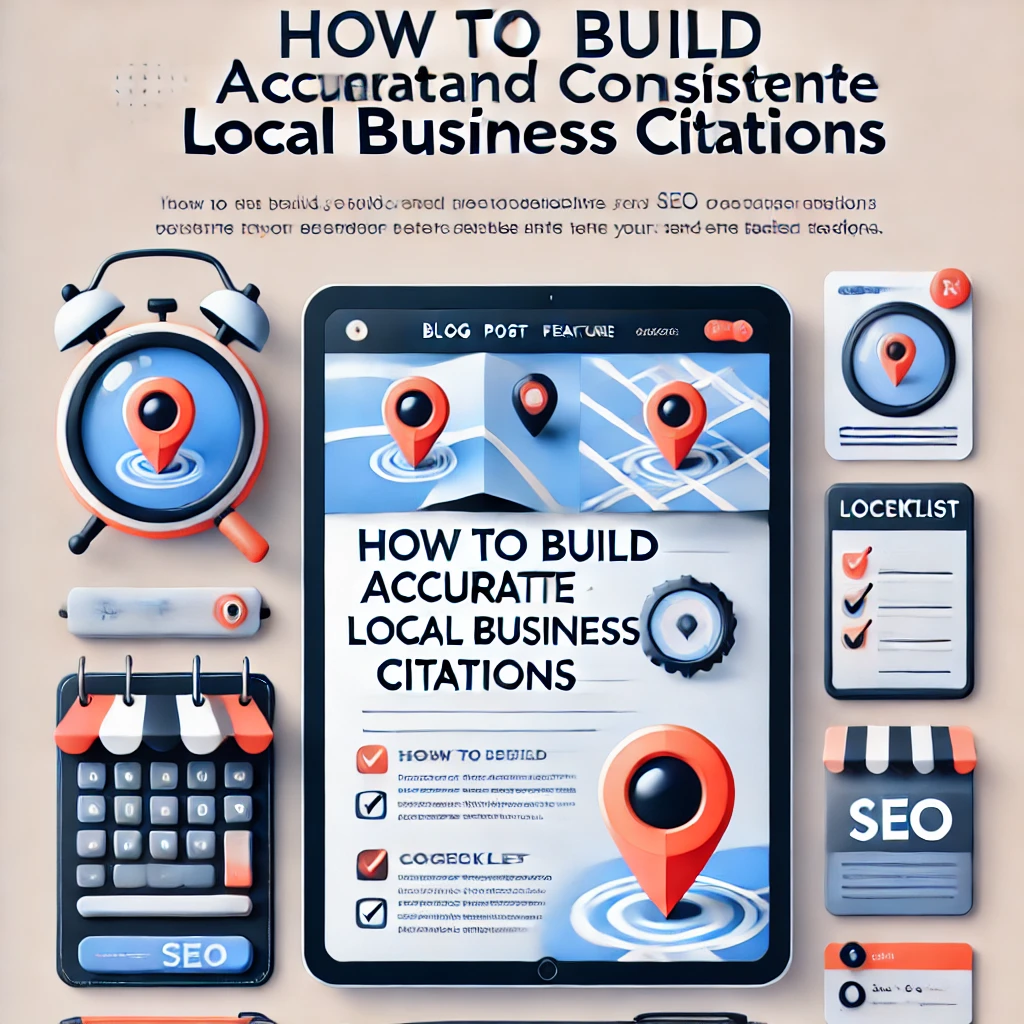How to Build Accurate and Consistent Local Business Citations
In today’s competitive online market, having accurate and consistent business information is crucial. If you’re a local business, ensuring your details are correct across the internet can make a big difference. This process is called building local business citations—and it’s a key factor in boosting your local SEO.
In this guide, we’ll explain what local business citations are, why they matter, and how to create them effectively.
What are Local Business Citations?
Local business citations are mentions of your business on the web. They typically include your business name, address, and phone number (NAP), and sometimes more details like your website URL or business hours.
There are two main types of citations:
- Structured citations: These are found on business directories like Google My Business, Yelp, or Bing Places. They follow a specific format and often include NAP details along with additional information such as reviews or ratings.
- Unstructured citations: These occur when your business is mentioned on blogs, news sites, or social media posts. These mentions may not follow a strict format but are still valuable for building online authority.
Why do they matter? Citations help search engines confirm that your business exists and is legitimate. The more accurate and consistent your citations are, the better your chances of ranking higher in local search results.

The Impact of Inaccurate Citations
Accurate citations are critical, but what happens if they’re not consistent?
Let’s say your business recently moved to a new location, but some directories still list the old address. Or maybe you’ve changed your phone number, but half of your citations haven’t been updated. These inconsistencies can confuse search engines and your customers. Search engines might lower your ranking because they can’t verify your business details, and customers might show up at the wrong location or dial the wrong number.
A real-life example: A business that had incorrect citations across multiple platforms experienced a drop in its local SEO rankings and saw fewer customers visiting its new location. Cleaning up the citations resulted in an almost immediate boost in both rankings and foot traffic.
Key Elements of a Local Business Citation
When creating or updating a citation, certain elements are non-negotiable:
- Name: Use your exact business name. Avoid adding extra keywords or unnecessary changes.
- Address: Ensure your full address is correct and follows the same format across all platforms.
- Phone Number: Use a local phone number with the correct area code.
In addition to the basic NAP information, some citations may include:
- Website URL: Linking directly to your business’s homepage helps build authority.
- Business hours: Displaying your hours of operation ensures customers know when you’re open.
- Email Address: Optional, but useful if you want customers to contact you via email.
Remember: Consistency is key. Using different versions of your business name or address on different platforms can harm your SEO and confuse both search engines and potential customers.
How to Build Consistent Citations
Step 1: Identify Your Core Business Information: Start by making sure you have a document that lists your NAP information exactly as it should appear everywhere. Verify every detail, from spelling to formatting.
Step 2: Use a Business Listing Service or Update Manually: You can either use a citation management tool (like Moz Local or Yext) to help distribute your information or manually create listings on major platforms. Both approaches work, but tools save time and reduce the risk of human error.
Step 3: Start with the Major Platforms: Focus on the most important business directories first. Ensure your information is up to date on:
- Google My Business
- Yelp
- Bing Places
- Facebook Business Pages
These are essential for local visibility.
Step 4: Expand to Niche Directories: Once you’ve covered the main platforms, explore industry-specific and regional directories. For example, if you own a restaurant, platforms like Zomato or TripAdvisor may be critical. For lawyers, directories like Avvo or FindLaw are important.
Tools to Help with Citation Management
Managing citations manually can be time-consuming, especially if you have multiple locations. Fortunately, there are several tools designed to make this easier:
- Moz Local: Ensures your listings are accurate across multiple platforms.
- BrightLocal: Provides local SEO tools for monitoring citations and improving your local search rankings.
- Yext: Offers a way to manage your business listings and ensure data is consistent across hundreds of directories.
- WhiteSpark: Specializes in finding citation opportunities and managing them for local businesses.
These tools not only save time but also prevent the human errors that can happen with manual updates.
Best Practices for Citation Accuracy
Even with tools in place, there are a few steps you can take to ensure your citations remain consistent over time.
- Regular Audits: Make it a habit to check your citations at least twice a year. Errors can slip in, and information can become outdated quickly.
- Fix Inconsistencies Immediately: If you notice any discrepancies, correct them right away to avoid confusion or penalties.
- Monitor New Citations: As your business grows, more citations will appear online. Regularly monitor for new citations to ensure they reflect the correct NAP information.
Bonus Tips for Building Credible Citations
- Encourage Local Media Mentions: Gaining unstructured citations from local news outlets or bloggers can increase your online authority and help with local SEO.
- Optimize for Voice Search: As more consumers use devices like Alexa and Google Assistant to find local businesses, make sure your citations are compatible with voice search. This means using natural language and including complete, accurate business information.
- Use Schema Markup: Adding structured data (Schema Markup) to your website helps search engines understand your business better, leading to improved local search rankings.
